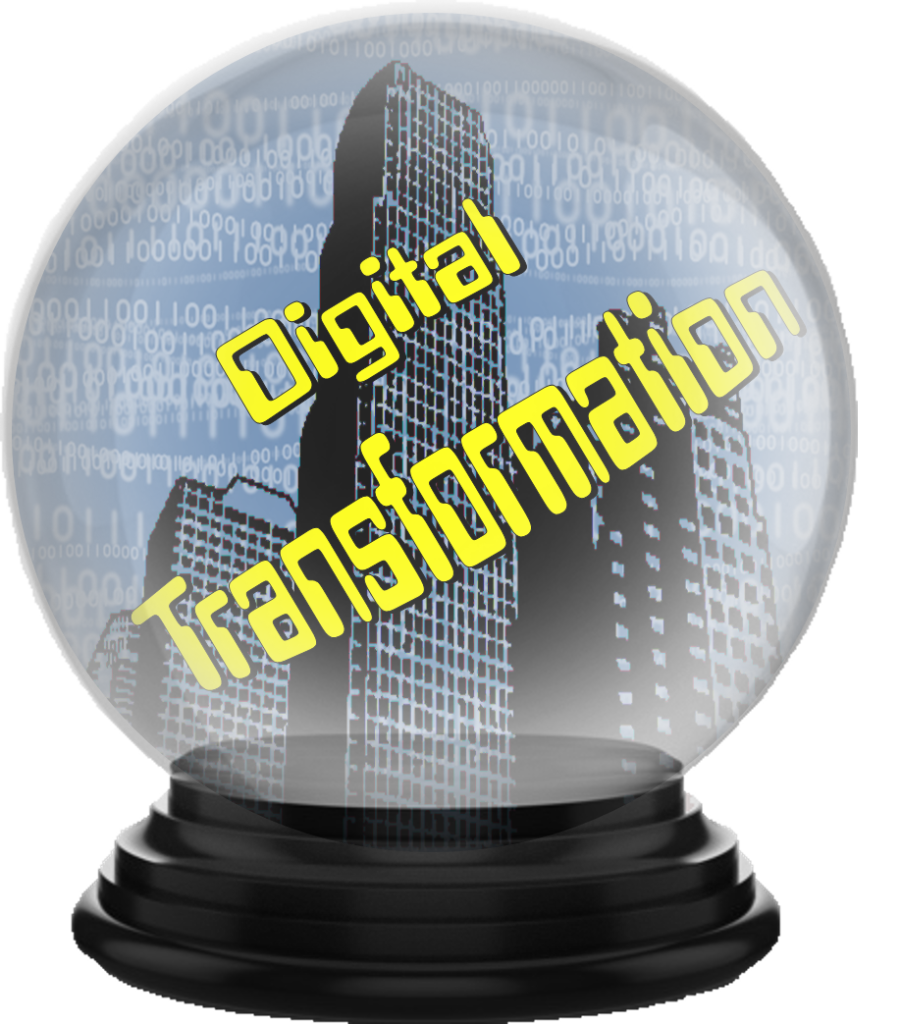Most analysts agree that companies organized around principles developed during the industrial age must transform themselves into digital enterprises if they are to survive in the information age. This digital transformation requires more than simply adopting a few new practices or technologies. It requires a holistic approach to the enterprise. Nicholas D. Evans (@NicholasDEvans), a Vice President and General Manager within the Office of the CTO at Unisys, believes 2017 could be a turning point for many businesses when it comes to digital transformation. “This coming year,” he writes, “will be highlighted by organizations taking a more holistic focus on digital transformation that taps into platform business models, the power of technology combinations, mastery of digital services and leading practices in corporate innovation.”[1] Below are some predictions about digital transformation from leading pundits including Evans.
CIO could be a New Career Path to CEO
Gil Press (@GilPress) reports IDC analysts predict, “By 2021, one third of CEOs and COOs of Fortune 2000 companies will have spent at least 5 years of their career in a technology leadership role. This will be a new career path for current CIOs who can forge digital-based alliances across the enterprise and lead digital transformation initiatives.”[2]
Digital Transformation will Improve Corporate Adaptability
Daniel Newman (@danielnewmanUV), a Principal Analyst of Futurum Research and CEO of Broadsuite Media Group, asserts, “Adaptability is more vital to success than ever. Change is going to happen whether you pursue it or not — you only need to look at how the role of cloud computing in 2016 has evolved to understand. Modern enterprises succeed when they adapt to industry and marketplace shifts and incorporate new technology into company culture and regular operations. However, digital transformation isn’t only about technology, it’s about bringing together the power of technology with a culture that embraces the change that it can lead for the organization.”[3] Paul Miller (@paulmillersays), CEO and Founder of the Digital Workplace Group, agrees that culture will play a significant role in digital transformation. He predicts, “Culture will take an ever more central role in digital workplace success.”[4]
Digital Transformation will Spark Innovation
Evans agrees with Newman that the business environment is in a state of constant flux — and that’s a good thing. “In 2017,” he predicts, “we can be certain that change will be one of the only constants. The pace of innovation, particularly from large corporations and government, will start to close the gap with the tech sector, with ‘world-first’ innovations being rolled out on an almost weekly basis.” Newman and Evans are also in agreement about the speed with which innovation will take place. Newman writes, “The faster your organization can go from idea to implementation the more it can embrace opportunities to transform and even disrupt markets and internal business models. We’ve already talked about adaptability, but that plays a major role here as well. If a company has an adaptive culture where new tech can be easily integrated — or is at least encouraged — that enterprise is set up for long-term success.”
Digital Transformation will build on a Foundation of Smart Systems
Miller predicts, “Digital workplaces [will] seize on AI in the ‘intelligent workplace.’ This has been much talked about but now the ‘future’ has finally arrived. When my GPS app Waze asks me as I start driving from London if I would like to ‘go home’, it is thinking for me (and learning from my patterns). This quite subtle digital experience is starting to spread its tentacles through our consumer life — and the opportunities it offers internally within the workplace are fascinating. … All major enterprise technologies will become imbued with such ‘thinking for us’ — and much faster than I had envisaged even 12 months ago. In 2017, AI in the digital workplace will come of age as the ‘intelligent workplace’ gathers pace.” I agree with Miller and predict cognitive computing systems will be leveraged by leading enterprises to gain a competitive edge. Analysts from Amaze predict companies will embrace what they call an “enterprise hub.” They explain, “Businesses will look to consolidate their digital technical strategies in the year ahead and develop cohesive digital enterprise hubs. These will act as a control center for an organization’s entire digital estate bringing together and managing all digital assets and placing the customer at the centre of the digital ecosystem. This will take businesses beyond traditional content management and commerce solutions bringing together data, intelligence, content, functionality and back office functions as more capability is added for the consumer.”[5] IDC analysts add, “By 2018, companies investing in IoT-based operational sensing and cognitive-based situational awareness will see 30% improvements in the cycle times.”[6]
Digital Transformation will be Disruptive
Evans predicts digital transformation will disrupt industries. “In 2017,” he writes, “we’ll continue to see accelerating topple rates among the Fortune 500 as well as corresponding shifts in industry leaders. We may also see greater separation between digital leaders and laggards — driven by how well they deliver upon the digital customer experience — as well as more partnerships between industry players and high-tech players as they join forces to create superior offerings and integrated value propositions. Many of these new partnerships will be powered by platform business models that will likely generate some of the highest-magnitude business disruptions in the years ahead as they dissolve industry boundaries and extend the boundaries of the customer journey. These models have been shown to have much higher valuations when compared to traditional business models, primarily because they require no physical assets and convert linear value chains to multidimensional value networks.”
Digital Transformation will (or at least should be) User Friendly
Although digital transformation implies the workforce must be technology experts, the truth is employees need to be technology savvy but need not be experts. Because cognitive computing systems utilize natural language processing, user interfaces will democratize availability to advanced technology. Newman explains, “Digital transformation inherently espouses shadow IT and the need for agility. New tools and technologies need more than one avenue for viability — otherwise, their value quickly drops. APIs are a secret weapon for embracing true digital transformation.” User friendliness is even more important as digital enterprises reach out to customers. Amaze analysts predict, “The rise in AI powered assistants will start to add real value, with brands combining live and virtual help to the extent that customers will not be able perceive the difference. Purchases will become as simple as asking for help, telling an assistant what is wanted and giving payment details. Consumers won’t have to find help on a website — it will be there already, waiting for them across all touchpoints.”
Digital Transformation will draw heavily on the Internet of Things (IoT), Big Data, and Advanced Analytics
It should come as no surprise that digital transformation is primarily about harnessing and leveraging the value of data. The World Economic Forum has declared is a new class of resource as valuable as oil. With the emergence of the Internet of Things, the amount of data that will be generated will grow exponentially. Analyzing all of that data will be impossible without the assistance of cognitive computing systems and the advanced analytics they embody. Newman writes, “The importance of big data in the business world can’t be overstated. We know that there’s a dizzying amount of valuable data in the world, but few companies are using it to maximum effect. … In the age of Digital Transformation, almost everything can be measured. In the coming year this will be a cornerstone of how businesses operate. Every important decision can and should be supported by the application of data and analytics.” Concerning the IoT, he states, “The IoT offers immeasurable insight into customer’s mind. It’s also changing how daily life operates by helping create more efficient cities and leaner enterprises. Businesses and customers alike will continue to benefit from the IoT.”
Summary
Clearly, I haven’t been able to discuss all of the predictions being made about digital transformation. Hopefully, I covered enough them to convince you that digital transformation is a business imperative. Evans concludes, “We’re still at the beginning of an exciting journey which will take us into the next 10 years and beyond. While the term ‘digital transformation’ may change in the years ahead, you can be sure it will continue to be both digital and transformational.”
Footnotes
[1] Nicholas D. Evans, “5 digital business predictions for 2017,” Computerworld, 9 December 2016.
[2] Gil Press, “Digital Transformation: Predictions For 2017,” Forbes, 3 November 2016.
[3] Daniel Newman, “Top 10 Trends For Digital Transformation In 2017,” Forbes, 30 August 2016.
[4] Paul Miller, “My 10 digital workplace predictions for 2017,” Digital Workplace Group, 1 December 2016.
[5] Staff, “10 Predictions for Digital Innovation in 2017,” Amaze, 13 December 2016.
[6] Press, op. cit.





